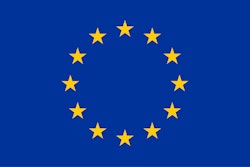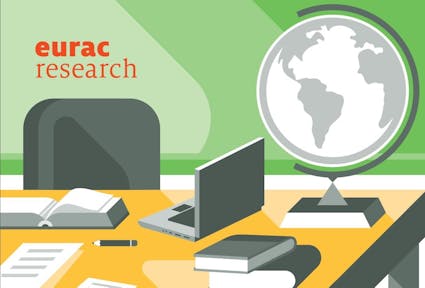One way or another: How local governments go digital

The task of digitalization confronts every state authority. However, the executive branch, which is in constant touch with citizens, is particularly challenged: it is entrusted with the mass enforcement of law. Administrative units cannot succeed in an increasingly fast-paced world without electronic means. This also applies to local governments. They are often the ones that have to provide important administrative services in the social, commercial or civil status areas and are dependent on a reliable digital structure. The individual paths being taken towards an administration 2.0, however, are very different from one another. This will be shown in the following using the digitalization of the building permit process as an example. There is a great need for efficient digitalization in this area. Slow, bureaucratic and non-digital building applications are considered a big obstacle to economic growth.
Hereinafter, Germany and North Macedonia are used as reference countries according to a "most different" approach. While in North Macedonia, building permits must be applied for and are issued electronically since 2013, the building permit procedure in Germany is still not fully digitized in 2024. Moreover, electronic applications are never mandatory in Germany, unlike in Macedonia. It is merely an option in Germany – the analogue paper alternative still exists. The fact that Germany performs poorly in terms of digitalization is proven by various statistics (see for example the Digital Economy and Society Index 2022). Without claiming to be exhaustive, the reasons for this result will be documented in the following.
Population – advantage for smaller countries: There are factors that favor the rapid digitalization of North Macedonia, but which cannot be changed in Germany. These include, for example, the size of a country's population. Smaller countries, such as the world leader Estonia, tend to have advantages when it comes to setting up an electronic government. North Macedonia, with a population of less than 2 million, simply has to organize a smaller group of people and therefore of applications than Germany with its 83 million inhabitants.
Central or federal – solutions from a single source pay off: In North Macedonia, the building permit process was digitized for the whole country by one central institution: ZELS, the Association of the local government units. This "one-stop" solution has proven to be particularly effective. Centralization is a major advantage for digitizing administrations, while federalism is slowing things down. The fact that Germany is a federal state and the administrative areas of the federal level and of the 16 Bundesländer must remain fundamentally separate is a problem in this context. In the end, 16 Bundesländer (e.g. North Rhine-Westphalia, Bavaria, Lower Saxony) have digitized their building permit procedures independently of each other. The prohibition of mixed administration is based on the principles of democracy, the rule of law and the federal state, each of which is enshrined in Art. 20 of the German constitution. There is no such strict provision in the Macedonian constitution, meaning that a state institution could simply digitize the building permit procedure for the entire country.2 Since the year 2009, the German constitution, however, contains the possibility of the federal level and of the Bundesländer to cooperate in terms of information technology systems (Article 91c of the Basic Law). But this is an exceptional provision to the general rule, which is interpreted narrowly and does not cover all relevant constellations by far.3
Step by step or all at once: It can also be observed that Germany is striving for a "big solution". This means that as many administrative services as possible are to be digitized at the same time. This can be seen, for example, in the Online Access Act (Onlinezugangsgesetz), which came into force in 2017. It set itself the goal of offering 575 administrative services, including building permit permissions, digitally by the end of 2022. This target has not been met. The comparison with North Macedonia, however, suggests that it can make sense not to aim for the big bang, but to proceed piece by piece – and, as the example of the building permit shows, to start with the digitalization of one very specific, but important administrative service.
Mere option or digital only: Another difference is the already mentioned issue of maintaining the analogue application process on paper as an alternative. In North Macedonia, only digital applications are offered. Citizens without the relevant IT skills have to get help from friends or family. In Germany, on the other hand, the electronic way is generally only offered as an option, in the case of building permits and also elsewhere. Double structures, however, require corresponding resources. Since the future lies in the digital world, there is much to be said for taking the path of exclusive electronic ways, at least for administrative services that do not by definition (such as pensions) affect mainly the older population.): Another difference is the already mentioned issue of maintaining the analogue application process on paper as an alternative. In North Macedonia, only digital applications are offered. Citizens without the relevant IT skills have to get help from friends or family. In Germany, on the other hand, the electronic way is generally only offered as an option, in the case of building permits and also elsewhere. Double structures, however, require corresponding resources. Since the future lies in the digital world, there is much to be said for taking the path of exclusive electronic ways, at least for administrative services that do not by definition (such as pensions) affect mainly the older population.
The level of digitalization has become a regional disadvantage or advantage – depending on how the country has managed the digital transformation in recent years and decades. A distinction must be made between factual obstacles that cannot be changed, such as the sheer size of the population on the one hand and unexploited opportunities on the other hand. There are also legal obstacles, such as federalism enshrined in the constitution, which cannot, must not and should not simply be abandoned in favor of faster digitalization. It is therefore all the more important to focus on the factors that can be modified at any time. In particular, the German approach of working through digitalization, understood as a one-off task, for hundreds of administrative services at once should be questioned. Technology will continue to develop and artificial intelligence is already on the administrative horizon. In this respect, digitalization has to be interpreted as an ongoing task, which will not leave us ever again. Pushing ahead selectively individual services, which are then gradually followed by others, seems to be a more promising approach.

Citation
This content is licensed under a Creative Commons Attribution 4.0 International license except for third-party materials or where otherwise noted.


This blog is part of the LoGov project. The project has recevied funding from th European Union's Horizon 2020 research and innovation programme under Grant Agreement No 823961.






